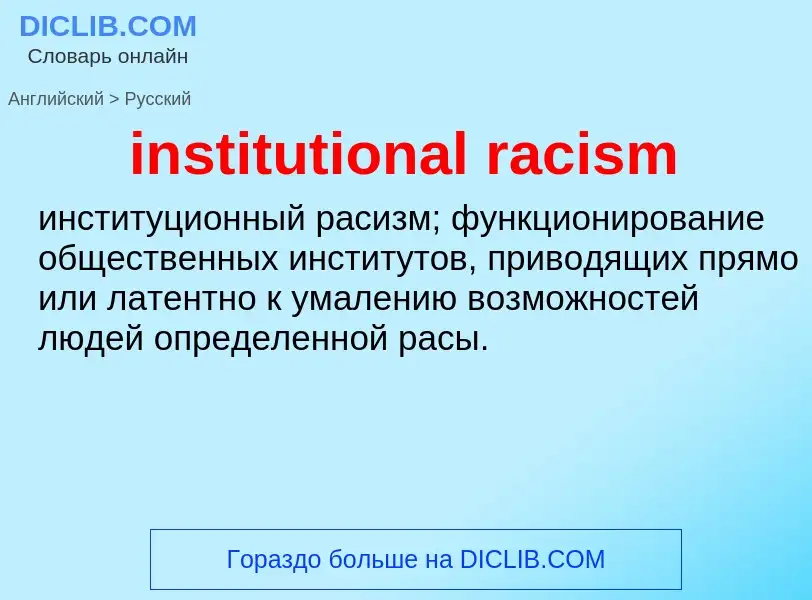Traducción y análisis de palabras por inteligencia artificial ChatGPT
En esta página puede obtener un análisis detallado de una palabra o frase, producido utilizando la mejor tecnología de inteligencia artificial hasta la fecha:
- cómo se usa la palabra
- frecuencia de uso
- se utiliza con más frecuencia en el habla oral o escrita
- opciones de traducción
- ejemplos de uso (varias frases con traducción)
- etimología
institutional racism - traducción al ruso
['reisiz(ə)m]
существительное
общая лексика
расизм
расовая дискриминация
Wikipedia
Institutional racism, also known as systemic racism, is defined as policies and practices that exist throughout a whole society or organization and that result in and support a continued unfair advantage to some people and unfair or harmful treatment of others based on race. It manifests as discrimination in areas such as criminal justice, employment, housing, health care, education and political representation.
The term institutional racism was first coined in 1967 by Stokely Carmichael and Charles V. Hamilton in Black Power: The Politics of Liberation. Carmichael and Hamilton wrote in 1967 that, while individual racism is often identifiable because of its overt nature, institutional racism is less perceptible because of its "less overt, far more subtle" nature. Institutional racism "originates in the operation of established and respected forces in the society, and thus receives far less public condemnation than [individual racism]".
Institutional racism was defined by Sir William Macpherson in the UK's Lawrence report (1999) as: "The collective failure of an organisation to provide an appropriate and professional service to people because of their colour, culture, or ethnic origin. It can be seen or detected in processes, attitudes and behaviour that amount to discrimination through prejudice, ignorance, thoughtlessness, and racist stereotyping which disadvantage minority ethnic people."

.jpg?width=200)




![An anti-Japanese sign at the [[Guangzhou Higher Education Mega Center]] in 2007. An anti-Japanese sign at the [[Guangzhou Higher Education Mega Center]] in 2007.](https://commons.wikimedia.org/wiki/Special:FilePath/Japanese-and-dogs-are-not-allowed statement from a restaurant in Higher Education Mega Center 2007.jpg?width=200)





.jpg?width=200)

